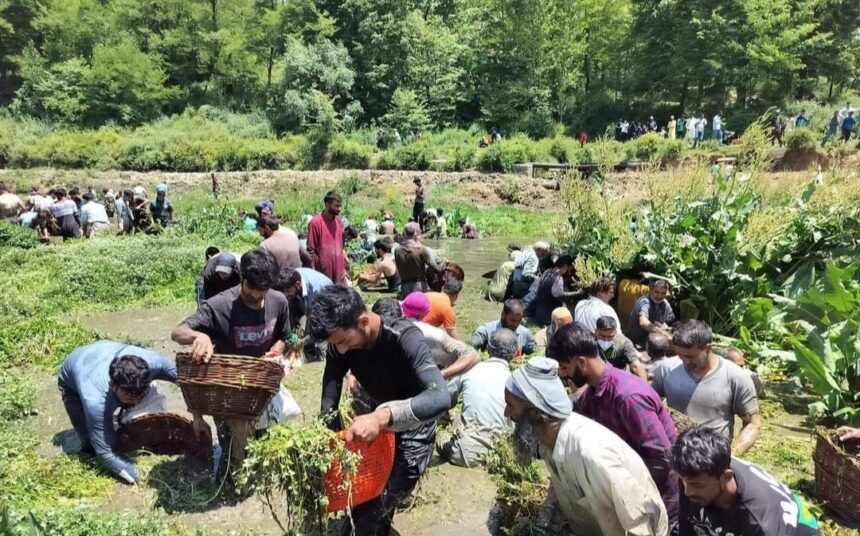Srinagar, May 27 : In the village of Panjath Nag, located in Qazigund, South Kashmir, the age-old traditions of ancestors are still alive and cherished. Every year, before the transplantation of paddy, the villagers engage in a ritual of cleaning the local springs and organizing a fishing competition. This event has evolved into a local festival that now attracts participants and spectators from surrounding villages as well.
Panzath Nag, as per the news agency—Kashmir News Observer (KNO), is renowned for its 500 waterfalls, including those nestled at the foothills of Pir Panchal. These waterfalls serve as crucial sources of irrigation and drinking water for hundreds of families in the Qazigund area. Each year, before the onset of paddy cultivation, the local community gathers to clean the reservoir, removing silt and weeds to ensure a proper irrigation system. “I have been participating in this annual festival since my childhood,” said a local resident, noting that Panjath Nag is just one kilometer from his house. “People come from even 50 kilometers away to witness and partake in this festival.”
Ghulam Nabi Dar, another resident, explained that the festival typically takes place in the third or fourth week of May, when the apple, almond, and walnut orchards are in full bloom. Spread over an area of 500 meters, the Panjath Falls become the center of activity as villagers clean the waters and catch fish. “This tradition has been passed down from our ancestors,” he said. “We eagerly await this festival all year. On this day, we take the fish home and prepare a feast for friends and family.”
The local community believes that with proper attention and development, this festival could become a significant tourist attraction, generating employment opportunities for many residents. They have appealed to the district administration to help maintain the waterfall and protect it from extinction.
The festival, as per the locals, not only preserves the cultural heritage of Panjath Nag but also strengthens community bonds and provides an opportunity for communal celebration and environmental conservation.





